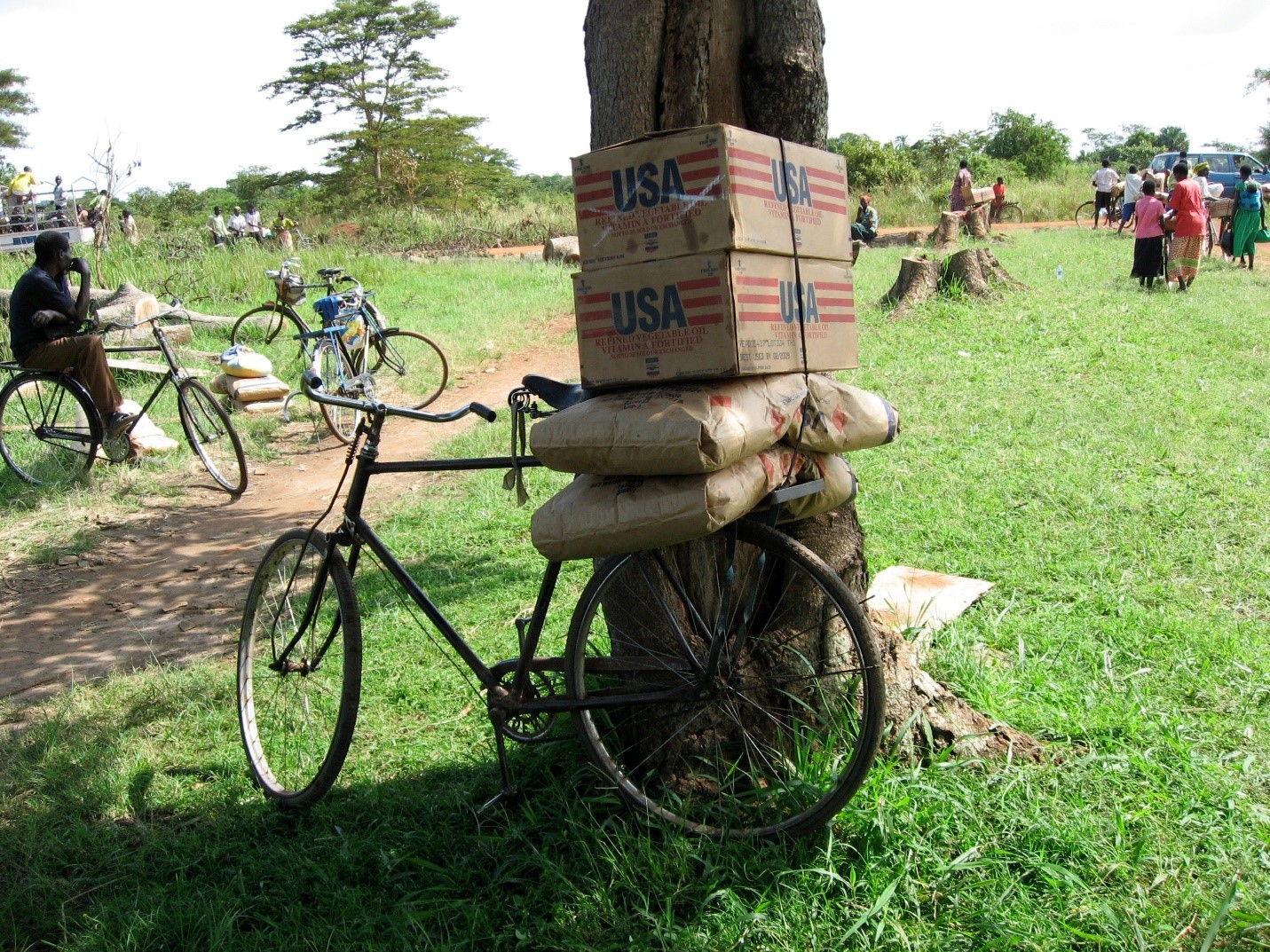For now I ask no more / than the justice of eating.”—from the poem “The Great Tablecloth” by Pablo Neruda
The United States plays a key role in the fight against global hunger with its many international food assistance programs under the Farm Bill.
The Food for Peace Act, which Congress reauthorizes in the Farm Bill, directs the most prominent international food assistance programs. Specifically, the act imposes domestic sourcing and cargo preference mandates. These narrow requirements hamper U.S. aid efforts. Congress should relax these restrictions, which would ensure that more of the scarce relief funds reach more communities quicker and at no additional cost.
Ultimately, the Food for Peace Act codifies a misguided bias for in-kind donations that could undermine local agricultural economies in regions receiving aid.
The Status Quo
The United States’ international food assistance comes in two flavors. First, in-kind aid distributes agricultural commodities produced in the U.S. to food-insecure regions. A version of in-kind contribution, monetization is when an aid entity sells U.S.-sourced commodities in developing countries and devotes the proceeds to local development projects. Second, cash-based assistance takes the form of vouchers, direct cash transfers, or locally or regionally procured foods.
The aid in Food for Peace programs must meet two narrow requirements. In administering international food aid programs, the U.S. Agency for International Development and the Department of Agriculture must domestically source all food aid commodities, unless the food falls within narrow exceptions, and at least half of the American food aid commodities ship on U.S.-flag commercial vessels.
Further, Food for Peace programs furnish the lion’s share of U.S. food assistance through controversial in-kind aid. More specifically, the statute prescribes that a minimum of 15% of FFP non-emergency commodities are distributed through the process of monetization.
The Critique
With Syria scarred by violence, East Africa afflicted by drought, and the Philippines plagued by extreme climate events in recent years, the world has seen a rise in hunger. Scholars and practitioners have highlighted flaws in the U.S.’s current food aid regime that limit capacity to serve the growing food-deficit population.
The three key statutory requirements – domestic sourcing, cargo preference, and monetization – have propped up a wasteful system in which only 35-40 cents of every taxpayer dollar spent on food aid go toward delivering actual food to beneficiaries. The rest are gobbled up in shipping and overhead.
- The U.S. domestic sourcing mandate contributes to inefficiency because buying and transporting food in the recipient locality or region usually costs much less. Local and regional procurement expedites delivery by an average of three months, a difference that can mean life or death for families on the brink of starvation.
- Government and academic studies have found that the cargo preference rule substantially raises shipping costs and benefits foreign corporations, not American mariners.
- Monetization not only creates preventable administrative costs but also destabilizes markets overseas, injuring local producers.
The Solution
The 2018 Farm Bill took a meaningful step forward by removing the prior monetization requirement. Further legislation could play an important role in modernizing the American food aid system. For example, the Food For Peace Modernization Act, introduced last year, would reduce the U.S. sourcing requirement from the present level of nearly 100 percent to 25 percent of food aid commodities.
The 116th Congress should re-introduce and pass the Food for Peace Modernization Act. The change in the sourcing rule would eliminate $300 million of needless expenses, thereby allowing NGOs to service 9 million more people through local and regional procurement or cash-based assistance. Further, by allowing beneficiaries to use vouchers or debit cards as a mode of food assistance the Food For Peace Modernization Act would bolster local markets and empower local communities to buy food closer to home.
Beyond the Food for Peace Modernization Act, Congress should eliminate cargo preference provisions in foreign food aid programs. Scrapping this anti-competitive restraint would slash costs without compromising military readiness. Proponents of cargo preference in U.S. food aid cite that the provisions preserve a large oceangoing fleet of ships and mariners. However, of the most militarily useful ships, food aid comprised less than 5% of their total shipments.


